Install the app
How to install the app on iOS
Follow along with the video below to see how to install our site as a web app on your home screen.
Note: This feature may not be available in some browsers.
You are using an out of date browser. It may not display this or other websites correctly.
You should upgrade or use an alternative browser.
You should upgrade or use an alternative browser.
Nvidia GeForce RTX 40x0 rumors and speculation
- Thread starter Below2D
- Start date
DegustatoR
Legend
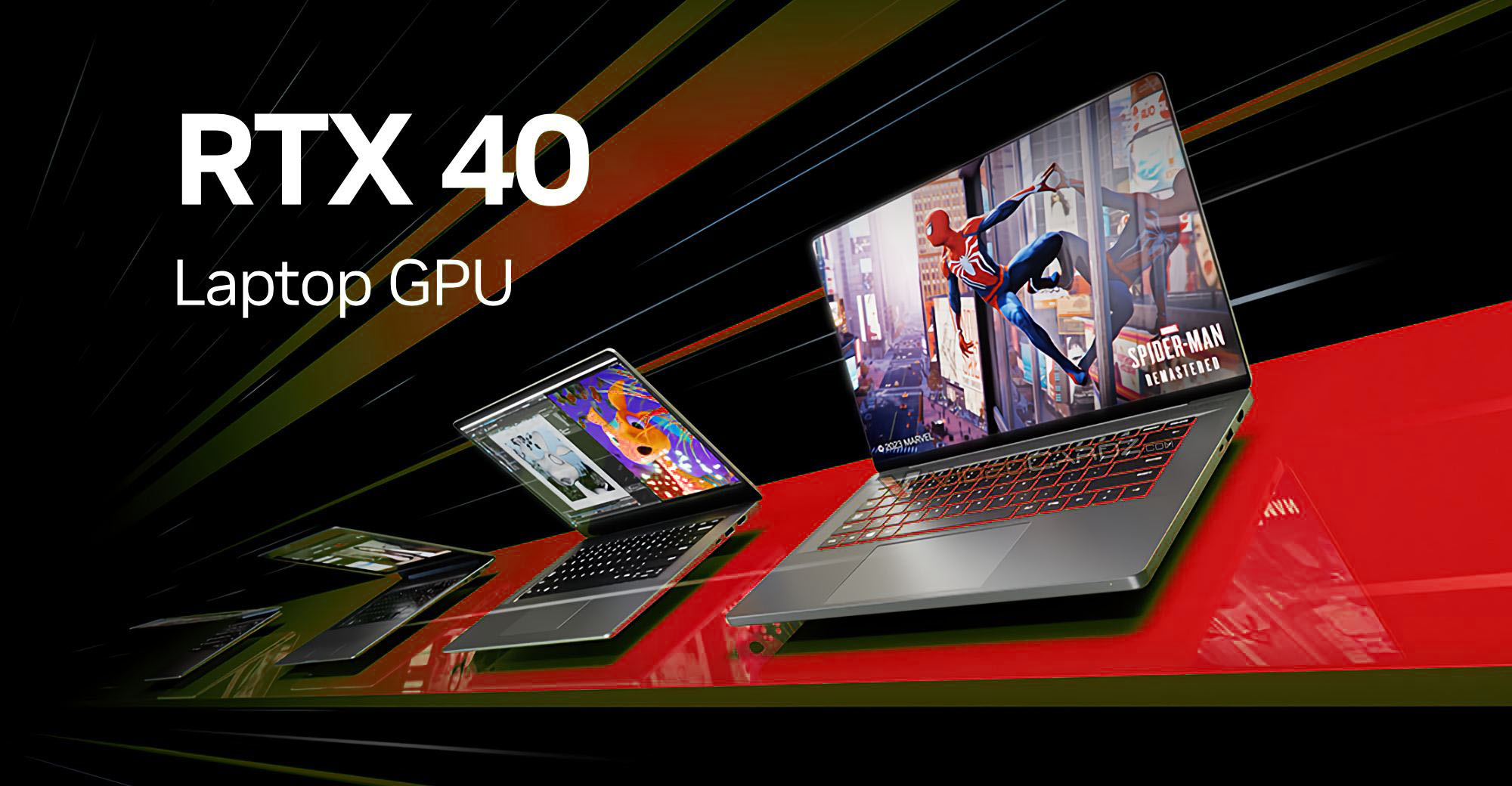
NVIDIA GeForce RTX 4070 & 4060 Laptop GPUs show small improvement in OpenCL test - VideoCardz.com
NVIDIA RTX 4070/4060 tested Chinese news outlet ITHome has received first performance figures for the upcoming GeForce RTX 40 mobile GPUs. The site had already shared 3DMark score of the RTX 4060 before, which in many ways is more useful than Geekbench, but today the first synthetic scores were...
arandomguy
Veteran
8GB 4070 for $600+ in 2022 is bonkers. Probably $650+. The damn 3060 had 12GB.
The table I think you are referring to is for mobile in which everything is down shifted one die, so RTX 4070 mobile uses AD106. This matches last gen mobile. RTX 3060 mobile also was limited to only a 6GB config, and so x60 and downwards looks like it will get VRAM increases.
RTX 4070 on desktop is rumored to still use AD104 with a 192-bit memory bus and therefore 12GB of VRAM. Currently also rumored to be 46 SMs (vs 60).
Bondrewd
Veteran
But it used not to, 3060 Laptop and DT both were GA106.The table I think you are referring to is for mobile in which everything is down shifted one die
Same with 3070(Ti).
arandomguy
Veteran
But it used not to, 3060 Laptop and DT both were GA106.
Same with 3070(Ti).
I was referring to this specific generation in which everything seems to be shifted down one die compared to desktop. As such RTX 4070 mobile being AD106 does not meant RTX 4070 desktop will be AD106, and therefore limited to 8GB VRAM as was that users concern.
Bondrewd
Veteran
Which is a really, really bad idea if you want to achieve any sort of generational uplift.I was referring to this specific generation in which everything seems to be shifted down one die compared to desktop.
I see. Really hope that’s true.The table I think you are referring to is for mobile in which everything is down shifted one die, so RTX 4070 mobile uses AD106. This matches last gen mobile. RTX 3060 mobile also was limited to only a 6GB config, and so x60 and downwards looks like it will get VRAM increases.
RTX 4070 on desktop is rumored to still use AD104 with a 192-bit memory bus and therefore 12GB of VRAM. Currently also rumored to be 46 SMs (vs 60).
DegustatoR
Legend
It is.I see. Really hope that’s true.
Desktop 4070 will use the same die as 4070Ti and will either have the same 192 bit bus or be cut down to 160 bits and thus 10GBs (early rumors were for the latter, later rumors for the former).
In notebooks 4090 is AD103, 4080 is AD104, 4070 is AD106 while 4060 and 4050 are AD107 with the last one getting a cut memory bus from 128 to 96 bits.
CB.de made a full spreadsheet:
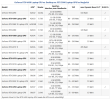
NVIDIA's official specs for the 4070Ti Super listed it as having 48MB L2. Is it possible this is a mistake, same as when they listed 36MB for the 4070 Super? I'm inclined to say it is a mistake since the 4070Ti did sport 48MB and they may have copy pasted the specs they thought weren't changing.
Now I can't find mention of the cache config on NVIDIA's website. Seems they may have removed it.
Now I can't find mention of the cache config on NVIDIA's website. Seems they may have removed it.
arandomguy
Veteran
Now I can't find mention of the cache config on NVIDIA's website. Seems they may have removed it.
They were only ever listed in the news post for the GPUs and not the actual GPU pages.
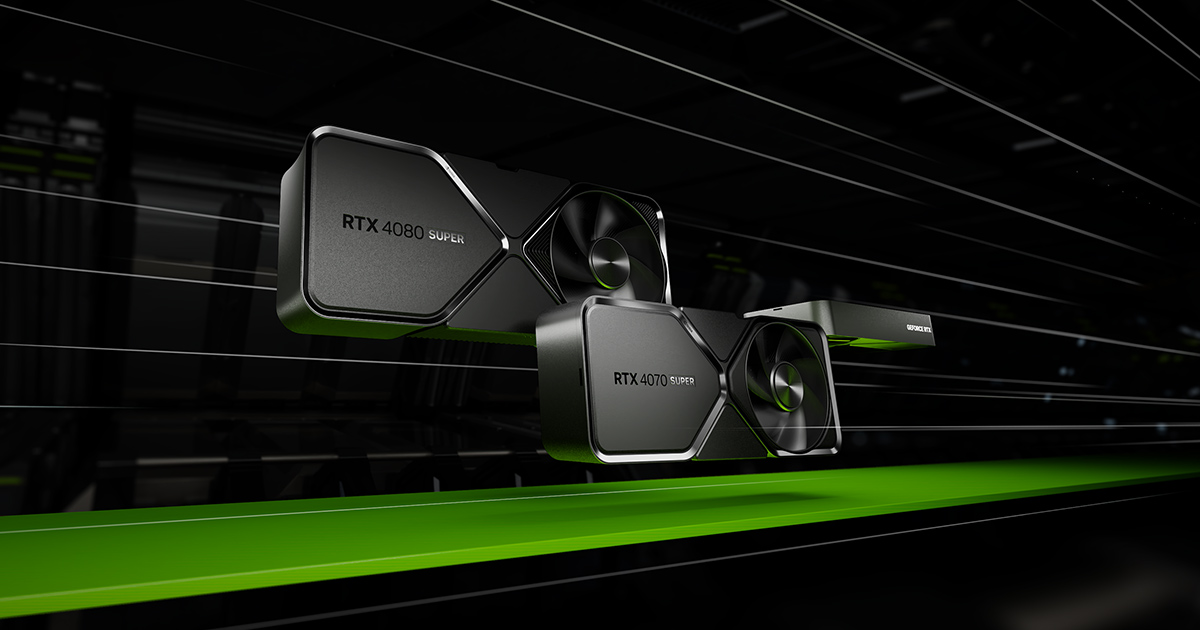
GeForce RTX 40 SUPER Series Graphics Cards Launching This January, For Supercharged Gaming & Creating, With Super-Fast AI
The new GeForce RTX 4080 SUPER, GeForce RTX 4070 Ti SUPER, and GeForce RTX 4070 SUPER graphics cards launch throughout the month, beginning with the GeForce RTX 4070 SUPER on January 17th, starting at $599.
www.nvidia.com
Thanks. They corrected the 4070 Super specs there but the 4070Ti Super remains 48MB. Could still be wrong though.They were only ever listed in the news post for the GPUs and not the actual GPU pages.

GeForce RTX 40 SUPER Series Graphics Cards Launching This January, For Supercharged Gaming & Creating, With Super-Fast AI
The new GeForce RTX 4080 SUPER, GeForce RTX 4070 Ti SUPER, and GeForce RTX 4070 SUPER graphics cards launch throughout the month, beginning with the GeForce RTX 4070 SUPER on January 17th, starting at $599.www.nvidia.com
Are there any benchmarks where the 4070 Super takes an outsized lead over the 4070, more than the increase in compute would account for? I'm wondering how much difference the extra 12MB makes for AD104.
DegustatoR
Legend
Not really. Card is scaling pretty much identically to 4070 in all resolutions. You could attribute that to the increase in effective b/w of course but then you'd have to assume that it affects something like 1080p too.Are there any benchmarks where the 4070 Super takes an outsized lead over the 4070, more than the increase in compute would account for?
Yea I haven't noticed any instances of unexpected scaling either.Not really. Card is scaling pretty much identically to 4070 in all resolutions. You could attribute that to the increase in effective b/w of course but then you'd have to assume that it affects something like 1080p too.
arandomguy
Veteran
Thanks. They corrected the 4070 Super specs there but the 4070Ti Super remains 48MB. Could still be wrong though.
Are there any benchmarks where the 4070 Super takes an outsized lead over the 4070, more than the increase in compute would account for? I'm wondering how much difference the extra 12MB makes for AD104.
Do note the 4070s, like the 4070ti, also things like more ROPs and other GPC sub units relative to the 4070 as well. Not just the cache size and SMs (and related sub units).
My cursory impression though is the stock tests would likely need more of a "deep dive" controlling for other variables notably power limit/clock speeds. A possible issue with the 4070, 4070s, and 4070ti comparisons is that the stock power limit isn't scaled proportionately the same for them. The 4070s has only 10% more power to work with despite 20% SMs at the same clocks.
The TPU review for example has their FE model hitting 100mhz lower than the 4070 during Cyberpunk 2077 and 120mhz lower with Cyberpunk 2077 RT even though technically their boost clocks are the same. The 4070s also does clock significantly lower in those compared to the overall average while the 4070ti (although no exact reference makes this harder) basically if you look at the clockspeed results essentially has very uniform clock speeds, possible because the power limit is very high.
I wonder if the increased cache and associated higher hit rate here has a benefit in terms of efficiency (lower energy going to L2 vs. VRAM).
Yes, there are a small handful of games where it shows a surprising lead over the 4070. Like this:Are there any benchmarks where the 4070 Super takes an outsized lead over the 4070, more than the increase in compute would account for?
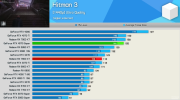
26% increase in performance with only a 21% increase in core count. All while you usually do not get linear 1:1 improvements with core count and performance, especially not with equal memory bandwidth. So yea, it would suggest the extra 12MB of L2 is making a notable difference here and in a couple other games.
DegustatoR
Legend
First results for 4070TiS are somewhat unimpressive at least:Thanks. They corrected the 4070 Super specs there but the 4070Ti Super remains 48MB. Could still be wrong though.
Are there any benchmarks where the 4070 Super takes an outsized lead over the 4070, more than the increase in compute would account for? I'm wondering how much difference the extra 12MB makes for AD104.
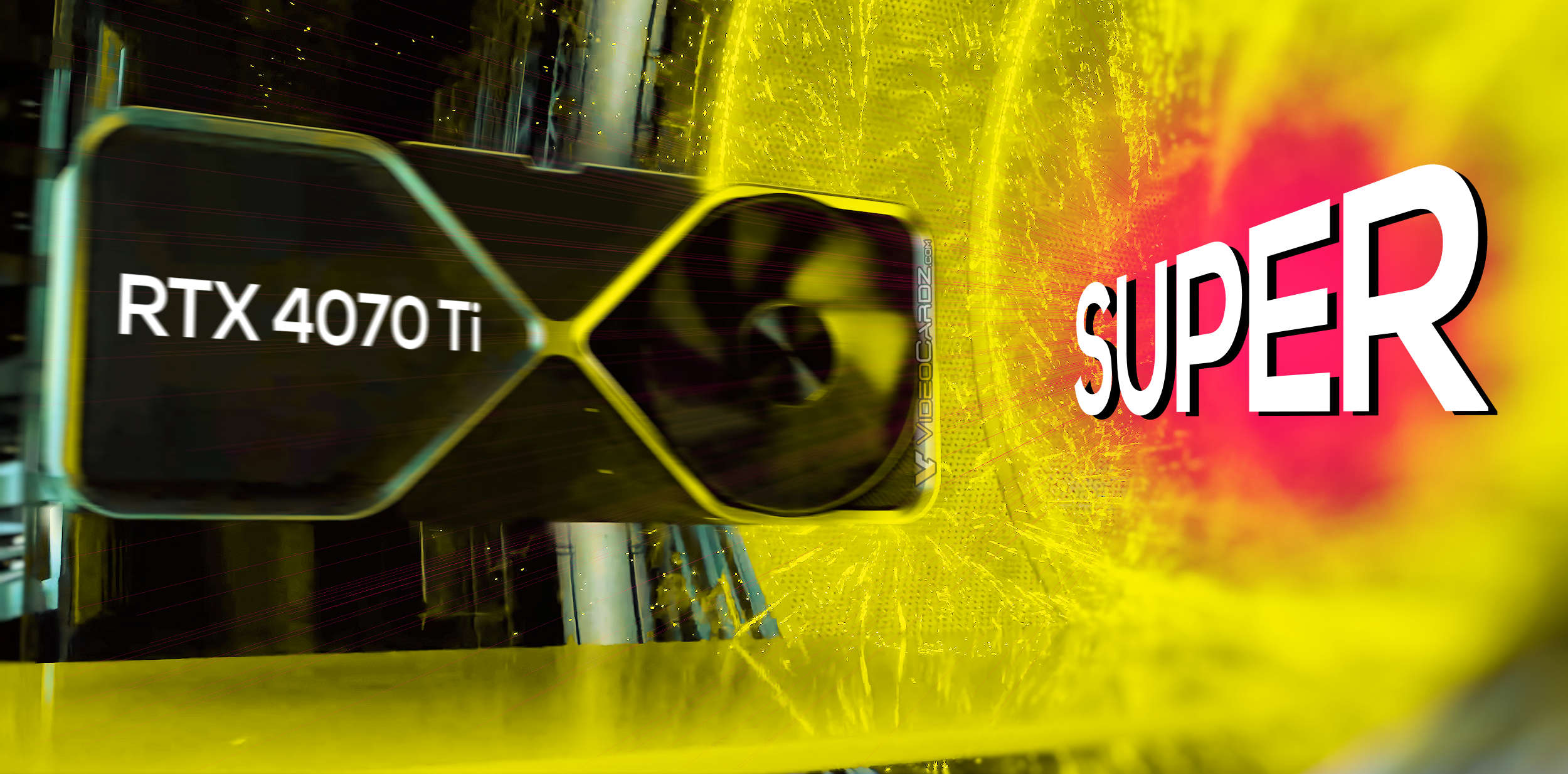
NVIDIA GeForce RTX 4070Ti SUPER is 8% faster on average than RTX 4070Ti in 3DMark tests - VideoCardz.com
NVIDIA RTX 4070 Ti SUPER shows 8% higher performance on average in 3DMark tests While the RTX 4070 SUPER showed a large increase in performance compared to the RTX 4070, the RTX 4070 Ti SUPER appears to offer a smaller improvement. Reviewers are currently conducting tests on the RTX 4070 Ti...
It's still the card I probably would've gotten had it existed back in March. When I look at the entire 4000 series lineup I end of at the 4070Ti Super as the most sensible option for the mid-high end.First results for 4070TiS are somewhat unimpressive at least:

NVIDIA GeForce RTX 4070Ti SUPER is 8% faster on average than RTX 4070Ti in 3DMark tests - VideoCardz.com
NVIDIA RTX 4070 Ti SUPER shows 8% higher performance on average in 3DMark tests While the RTX 4070 SUPER showed a large increase in performance compared to the RTX 4070, the RTX 4070 Ti SUPER appears to offer a smaller improvement. Reviewers are currently conducting tests on the RTX 4070 Ti...videocardz.com
That's an interesting theory. On power limited cards, having more L2 would have benefits beyond simply faster access to memory. Since accessing L2 costs less energy you can clock higher in the same power budget.I wonder if the increased cache and associated higher hit rate here has a benefit in terms of efficiency (lower energy going to L2 vs. VRAM).
I suspect it will still do alright as 16GB has been propped up as a bit of a psychological barrier vis a vis current gen console conversions.It's still the card I probably would've gotten had it existed back in March. When I look at the entire 4000 series lineup I end of at the 4070Ti Super as the most sensible option for the mid-high end.
There will certainly be some real edge cases where the 12GB models will have a comparatively larger dropoff.
Yea but I think it's more than a psychological barrier. 12GB on the 4070 was not enough for me in Hogwarts Legacy at 1080p Ultra without upscaling. It's fine for a few minutes but then FPS goes way down. I had to turn textures to high and then it was stable.I suspect it will still do alright as 16GB has been propped up as a bit of a psychological barrier vis a vis current gen console conversions.
There will certainly be some real edge cases where the 12GB models will have a comparatively larger dropoff.
Unfortunately benchmarks don't capture the reality of being VRAM limited. You can't reliably tell if a game is going to be VRAM limited in a 60 second test run. In my experience, many games will run fine for a bit and then take a shit once VRAM fills up.
24Gb GDDR7 can't come soon enough. I'm looking for 18GB on a 192bit bus. Hopefully the 4070 will last me until then.
Last edited:
Similar threads
- Replies
- 599
- Views
- 60K
- Replies
- 166
- Views
- 12K
